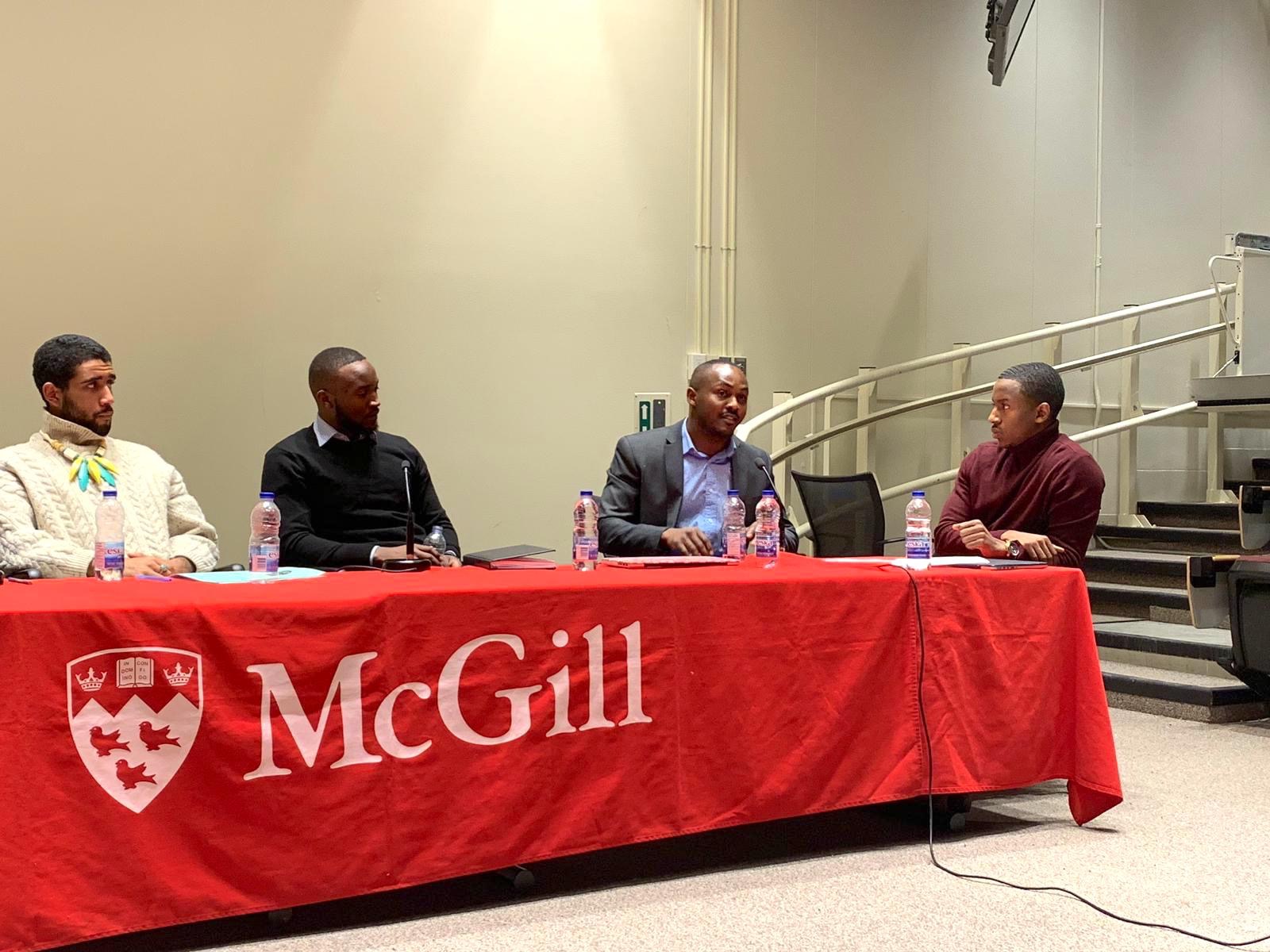Deputy High Commissioner of the Kenya Mission in Ottawa Jane Kerubo, entrepreneur Idil Essa, and McGill professor Khaled Medani spoke at the McGill African Students Society’s (MASS) first “Africa Speaks” conference, held from Feb. 8 to Feb. 9. Previously known as “The African Development Convention,” MASS decided to rename their conference this year to better reflect their goals and to challenge mainstream conceptions of development.
“This conference was started in 2013 […] to create a space for African-centred discourse [where] Africans are controlling their own narrative,” Andreann Asibey, U4 Arts and president of MASS, said. “We changed the name to ‘Africa Speaks’ to move away from development [discourse, which] is a bit archaic at this point.”
Past MASS conference themes include “Prisms: Africa in the 21st Century – Reclaiming Reality in all its Forms” in 2015 and “‘Africa’ Interrupted Switching the Channels of Development Discourse” in 2016. Morenike Fashola, U4 Arts and vice-president of MASS, explained how, in contrast to previous themes, this year’s conference looks to the future.
“This year, we wanted to move away from that development idea of always looking to the past, not really focusing on the [present], and what we can bring to the future,” Fashola said.
The two-day conference consisted of three panels, each focusing on a different aspect of modern African society: Living as an African woman, the importance and influence of diaspora, and the effects of neoliberalism.
The first panel was titled “Living as an African Woman in the 21st-century.” For Asibey, it is valuable to highlight the role that African women play in society as well as shed light on the challenges to pre-existing stereotypes in African society.
“We wanted to show that […] women are standing strong in their own truths,” Asibey said. “They are doing what they want to do and disregarding […] how society has pressured them [into] fitting a mold of [the] perfect African woman.”
The second panel, “The Afropolitan: Coming Full Circle,” showcased African identity as the lived experiences of Africans in and outside of the continent. This panel focused on the increasingly-important role of the diaspora to enact positive change on the continent and to discover and engage with African roots. Speakers also discussed the problematic and elitist implications of the term ‘Afropolitan,’ as it only implies the seemingly ‘rich’ diasporic communities.
“Afropolitan means different things to different people, but, to me, [… it means] a citizen of Africa,” Asibey said. “We talked about diaspora and what that means for Africans and Afro-descendants living here [….] I thought it was important to discover how […] identity plays out and how we’re viewed by others and ourselves depending on status […as well as] how people’s ties back to their continent impact themselves, and how [their ties] impact the continent.”
The third and final panel, “After development: Africa in the Neoliberal Age,” centred around neoliberalism and its effects on African society. The panellists defined neoliberalism as an economic ideology based on unregulated capitalism and boundless economic growth, which gained prominence during the late 1980s and still has lasting effects including environmental degradation, insufficient labour laws, and exploitation of resources. For Asibey, the purpose of this panel was to be an informative and historical discussion of the ways that neoliberalism has hurt Africa.
“Africa has been [tricked] into subscribing to an order that is meant to benefit and help them, but […] it’s actually, in my opinion, caused more problems than it’s solved,” Asibey said. “It’s brought about [environmental degradation], and it’s brought a new line of poverty [….] We just wanted to talk about that and see what the solution is in terms of moving forward [….] We are the solution, we need to look inwards rather than seeking [outside help].”
Favour Daka, U1 Arts and first-year representative for MASS, explained that the panels provided holistic and varied discussions on African scholarship, making dense, informative panels accessible for him and many others.
“They were really diverse,” Daka said. “The first [discussion] was very personal, the second was more [diaspora-centric], and [the last] one was the future. I think there are layers to [the panels] that [helped me] relate to most of them.”








